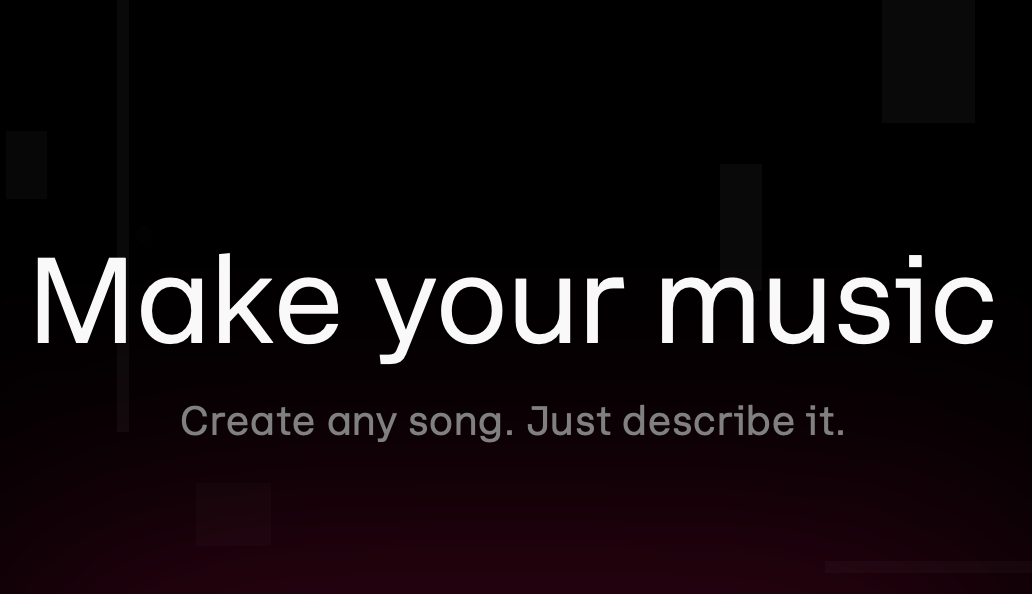AI music generators are tools that enable anyone, from hobbyists to professional musicians, to create music by simply providing a text prompt. These platforms use advanced algorithms to produce realistic songs, complete with vocals, instrumentation, and even lyrics. This article will explore how AI music generators work and dive into three of the most popular tools available today: Suno, Udio, and ElevenStudios.
How Do AI Music Generators Work?
AI music generators operate using a combination of machine learning, neural networks, and vast datasets of existing music. At their core, these tools analyze patterns in music data, including melody, rhythm, harmony, and structure. When a user inputs a text prompt, the AI interprets the instructions and generates a piece of music that matches the specified genre, style, or mood.
The process typically involves the following steps:
- Data Collection: AI models are trained on large datasets of music, learning to recognize and replicate various elements like genre-specific patterns, chord progressions, and lyrical themes.
- Pattern Recognition: The AI identifies patterns and trends within the music data, allowing it to mimic the style and structure of existing songs.
- Music Generation: Once trained, the AI can generate new music based on user input. This input can range from simple prompts like “create a pop song about love” to more complex requests, including specific instruments or lyrics.
- Refinement: Advanced AI platforms offer customization options, allowing users to fine-tune their creations by adjusting parameters such as tempo, key, or lyrical content.
You can find detailed information in our How Do AI Audio Generators Work? article.
Top 3 AI Music Generators
1. Suno
Tool called Suno AI, launched widely in December 2023, is a cutting-edge AI music generator that has gained significant traction, particularly after its integration with Microsoft Copilot. Suno allows users to create realistic songs, either instrumental or with vocals, using simple text prompts. The platform’s flexibility and ease of use have made it a favorite among both amateur and professional musicians.
With Suno’s V3.5 model, users can generate full-length songs of up to four minutes, even with a free account. The platform supports a wide range of music genres, and for those looking for more control, it offers features like the ability to upload an audio clip that the AI can build upon. Suno’s various subscription plans cater to different needs, from casual users to those seeking commercial rights to their creations.
One of Suno’s standout features is its ability to produce not just music but also accompanying elements like lyrics, song titles, and even artwork, making it a comprehensive tool for music creation.
2. Udio
Udio is another powerful AI music generator, first released in a free beta version in April 2024. Developed by a team of former Google DeepMind researchers, Udio has quickly gained popularity for its ability to create music that sounds incredibly realistic, including lifelike vocals and instrumentals.
Udio’s interface is designed for ease of use, with a prompt bar where users can type their desired song theme, select a music style, and even customize lyrics. The platform offers advanced features like audio inpainting, which allows users to modify specific sections of the music after it has been generated.
Udio also provides extensive customization options, including adjusting the strength of the prompt influence and selecting the specific part of the song to generate. This level of control makes Udio a versatile tool for musicians looking to experiment with different styles or fine-tune their creations.
3. ElevenStudios
ElevenStudios is an AI-powered platform specifically designed for musicians, offering a seamless way to craft unique sounds, explore new genres, and bring creative visions to life. While it shares many functionalities with Suno and Udio, ElevenStudios stands out for its focus on empowering musicians to elevate their music creation process.
ElevenStudios provides tools for generating music based on text prompts, with options to customize the output to suit the artist’s preferences. Whether you’re looking to create a new beat, experiment with different genres, or simply explore creative ideas, ElevenStudios offers a robust platform to support your musical journey.
Conclusion
AI music generators like Suno, Udio, and ElevenStudios are revolutionizing the way music is created, offering unprecedented access to powerful tools that make music creation more accessible than ever before. However, as these technologies advance, they also raise important questions about copyright and the ethical use of AI in the music industry.
Both Udio and Suno have faced allegations of violating music industry copyrights by using vast quantities of recorded songs to train their AI models. Copyright law is complex, and ongoing legal battles may shape the future of AI-generated music. Regardless of the outcome, it’s clear that AI is changing the landscape of music creation, making it an exciting time for both musicians and listeners alike.
Read other articles in our Blog.
